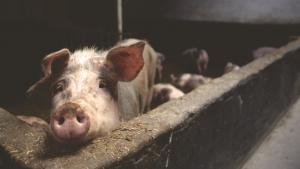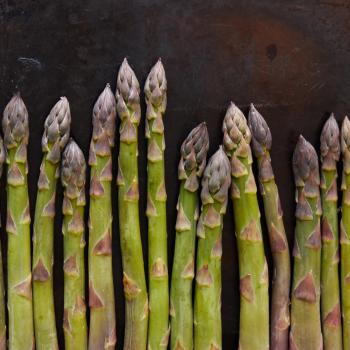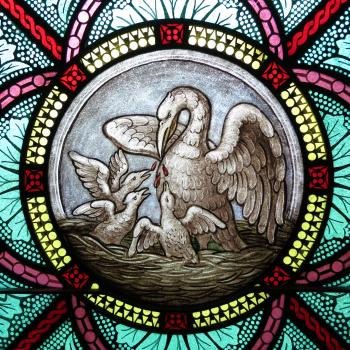
My father was sober, running his hand through his hair. His face was covered with revulsion and sadness. His words caught in his throat as he spoke.
“They’re dead.”
It is one of my first memories of loss.
Our family raised hogs on a small farmstead located about ten minutes from our home in town. They lived mostly outdoors, rooting through the fields and woods. But recently, my father had purchased two small state-of-the-art confinement trailers: one for farrowing sows, and one that served as a nursery for new piglets. The narrow white buildings were chaotic but fun to walk through, loud with the sound of squealing pigs and the whirring fans of the ventilation system.
One stormy evening, the blue clouds piled up on each other and let loose with rain and lightning, severing power all over the south end of the county. The next morning, my father drove out to the farm to do the morning chores. As he approached the nursery trailer, it stood silent. The power had been cut, and for some unknown reason, had not been restored.
All the new piglets lay dead, a jumble of little hooves and snouts. They had been suffocated by the tight, safe, building’s lack of ventilation when the electric fans ceased to move the air.
We are farm people. We do not grieve over the lives of animals. But there was grief. There was horror, too. We had never seen destruction on such a scale. For every action there is an equal and opposite reaction, and we discovered that day that technology with the power to save on an industrial level can also kill on an industrial level.
My poor father buried all those piglets. Then he installed yet another new technology, a warning system that made an automated telephone call to our house anytime the power at the farm was tripped. It dialed our house frequently during stormy weather, sending my parents cursing and flying down to the farm. I was afraid of all of it: the storms, the eerie calls, and the looming specter of mass death.
I will never forget it.
In wiser times, the Church marked Rogation Days on April 25th and again in the three days before Ascension Thursday. This portion was set aside to recognize our human frailty and beg God to keep the destruction of the natural world at bay. There were lengthy solemn liturgies, smack dab in the happiness of Eastertide. There were days of public procession and penance, undertaken in the very season when peasants should be busy plowing and planting, when every moment to get the crops in is crucial and idleness is fatal. But instead of relaxing the expectation to worship, the Church called to us after the manner of Solomon:
“Unless the Lord builds the house,
those who build it labor in vain.
Unless the Lord guards the city,
the guard keeps watch in vain.
It is in vain that you rise up early
and go late to rest.”
Outsiders make pastoral romance or escapist fiction out of the wide-open ranch, the homestead farm, the backyard cottage garden. But there is no place we can hide. These idylls are also a study in death and destruction. They are constant memento mori, even in the season of resurrection and new growth. What do we gain “from all the toil at which we toil under the sun?” Snowy orchard blossoms are cut short in the night by frost. Chickens are mangled and beheaded by a fox or an owl. A healthy tomato plant is stripped bare by a fat worm. Pigs die, sometimes for our meal, but sometimes just because Death delights in death. We can keep a half-step ahead with quick wits and new technologies. But for every action there is an equal, and the more we save the more the power of death redoubles. We labor in vain, and even our mighty works turn back upon us to destroy.
The practice of agriculture teaches us how to revile evil, how to grieve, and how to become detached from the dear and beautiful things we seek to grasp. If we are wise, it will inspire us to humble ourselves and call upon the Lord in our own solemn Rogation.
“From all evil, deliver us.
From all sin, deliver us.
From your wrath, deliver us.
From sudden and unprovided death, deliver us.
From the snares of the devil, deliver us.
From anger, and hatred, and all ill-will, deliver us.
From the spirit of fornication, deliver us.
From lightning and tempest, deliver us.
From the scourge of the earthquake, deliver us.
From plague, famine, and war, deliver us.
From everlasting death, deliver us.”











